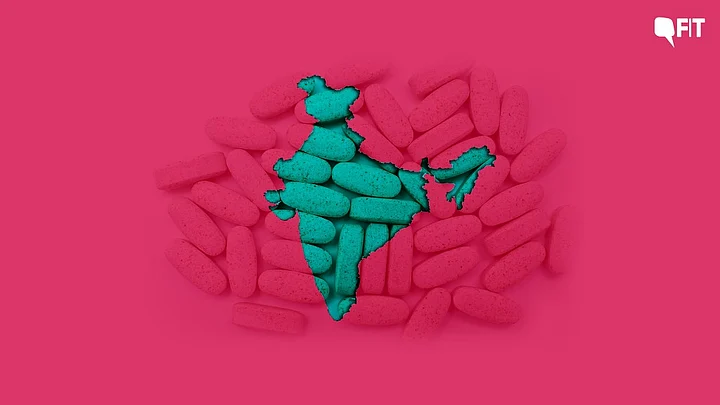Micro Labs, the manufacturer of Dolo-650 mg tablets has responded to allegations of bribing doctors to the tune of Rs. 1000 crores, by calling them "impossible".
At the peak of the Coronavirus pandemic, Dolo-650 mg tablets became synonymous with management and treatment of COVID-19 in India. The drug achieved ultimate popularity when it became a meme. The company that manufactured the drug, Micro Labs, based out of Bengaluru, saw profits sour.
In early 2022, the lab came under income tax scanner when the department accused the manufacturer of tax evasion.
And now, in a Federation of Medical & Sales Representatives Association of India (FMRAI) vs Union of India case at the Supreme Court, the FMRAI has accused the manufacturer of distributing freebies worth Rs 1000 crores to doctors to prescribe Dolo-650 mg as the go-to drug.
The accusation caused distress even to Justice DY Chandrachud who is heading the bench. He said:
"This is not music to my ears. I was also asked to have the same when I had Covid. This is a serious issue and matter."
What is Dolo-650 mg?
Dolo 650 mg is the brand name of a fixed-dose-combination drug that contains 650 mg of paracetamol. It is antipyretic and analgesic, meaning it helps decrease fever and pain. It is a non-steroidal anti-inflammatory drug that is available over the counter.
Most OTC brands sell paracetamol with 500 mg of salt.
Since the primary symptoms of COVID-19 were fever and pain, sale of all fever medicines shot up exponentially.
Why Did Dolo-650 mg become more popular than other paracetamol brands?
Sales of all paracetamol brands shot up during the pandemic as it was considered safe to tackle fever and pain associated with COVID-19.
According to an Indian Express article quoting market research firm AIOCD-AWACS, the revenue generated by paracetamol increased by 138.42 per cent between the second quarter of 2020 and the second quarter of 2021. While brands like GlaxoSmithKline, makers of Crocin and Calpol, saw their sales zoom up by 53 and 158.9 percent respectively, Dolo-650 sales went up by a whopping 289.6 percent during the same period.
Pharma experts chalk this up to lower supplies of other paracetamol brands and excessive marketing by Micro Labs, makers of Dolo 650. And now, accusations of bribery.
Price control and how do companies find ways around it?
The Drugs Price Control Order (DPCO) fixes price of certain essential drugs and their formulations under the Essential Commodities Act and no company can sell drugs above that fixed price. A recent order by National Pharmaceutical Pricing Authority fixed the price of Paracetamol to Rs 2.88 per tablet.
Now, a 500 mg Paracetamol tablet is under price control but its 650 mg strength is not. Which is where companies like Micro labs are able to price their drugs higher. This is of course a massive problem and according to some estimates almost 80 percent of drugs are not covered by the DPCO.
Would taking a higher dose of paracetamol have caused harm?
Doctors we spoke to say that up to 2 grams of paracetamol per day for an adult is an acceptable dose. So having 2-3 dolos a day for the period of the fever would not necessarily cause harm. But excessive use of paracetamol is linked to severe liver damage.
Dolo-650 is contraindicated for those who have liver disease, kidney disease and suffer from chronic alcoholism.
What has Micro Labs said about the accusations of bribery?
In a statement to ANI, Micro Labs dismissed the allegations stating that the brand only made Rs.350 crore during COVID.
“It is impossible for any company to spend Rs 1,000 crore on the marketing of a brand which made Rs 350 crore in the COVID year. That too when Dolo 650 comes under price control guidelines," Jayaraj Govindaraju, Executive Vice President, Marketing and Communication, Micro Labs said.
The manufacturer added that Dolo-650 wasn't the only drug that performed exceptionally during COVID's peak, but that other COVID protocol drugs like Vitamin C and other essentials were bought in high numbers at the time,
(At The Quint, we question everything. Play an active role in shaping our journalism by becoming a member today.)
